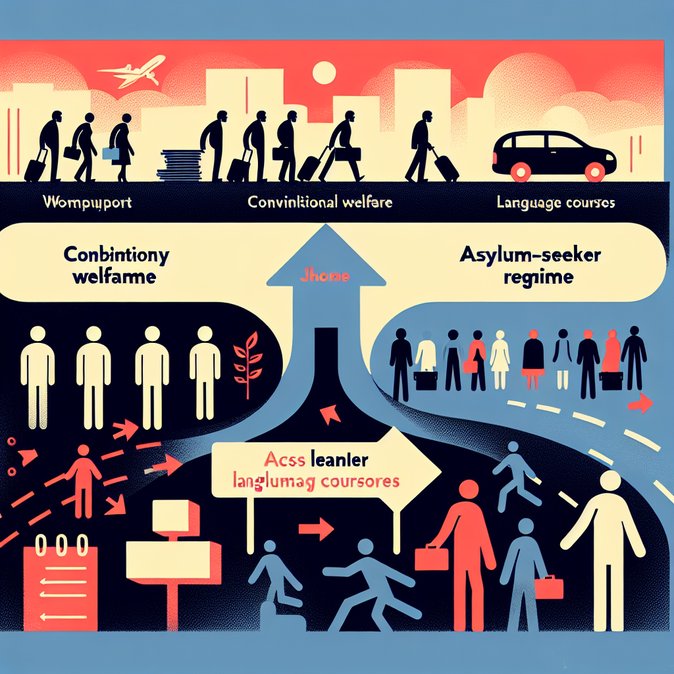
On 19 November the German cabinet approved the draft Leistungsrechtsanpassungsgesetz, a benefits-law amendment that will move Ukrainian war-displaced persons who arrive after 1 April 2025 from the Bürgergeld welfare scheme to the leaner Asylbewerberleistungsgesetz. The change cuts monthly cash support for single adults from €563 to €441 and aligns new arrivals with asylum-seekers from other countries.
Labour Minister Bärbel Bas argued that the reform removes bureaucratic complexity—Ukrainians had been the only group entitled to mainstream welfare despite holding temporary-protection status—and restores “equal treatment across all nationalities.” Roughly 1.26 million Ukrainians now live in Germany; 700,000 receive Bürgergeld, costing €6.3 billion in 2024. Existing recipients keep their benefits, but newcomers will face tighter rules.
![Cabinet shifts Ukrainian refugees to lower asylum benefits and mandates rapid job search]()
Crucially, the bill obliges employable refugees to register with job centres immediately. Those who fail to look actively for work can be assigned mandatory “activation jobs,” while poor German skills will trigger compulsory language courses. The Federal Employment Agency says its ‘Job-Turbo’ programme has already placed 242,000 Ukrainians in jobs; officials hope the tougher benefit regime will accelerate this trend.
Municipalities have welcomed the measure, saying lower benefit levels reduce pull factors and ease local budgets strained by housing costs. NGOs, however, warn that reduced support may push vulnerable families into poverty and hamper integration if childcare and training are not expanded at the same time.
For global-mobility teams the message is clear: employees relocating family members from Ukraine after April 2025 must budget for smaller state benefits and plan for faster labour-market entry. Companies may need to top up salaries or provide private health coverage until recruits complete integration courses and secure regular employment.
Labour Minister Bärbel Bas argued that the reform removes bureaucratic complexity—Ukrainians had been the only group entitled to mainstream welfare despite holding temporary-protection status—and restores “equal treatment across all nationalities.” Roughly 1.26 million Ukrainians now live in Germany; 700,000 receive Bürgergeld, costing €6.3 billion in 2024. Existing recipients keep their benefits, but newcomers will face tighter rules.

Crucially, the bill obliges employable refugees to register with job centres immediately. Those who fail to look actively for work can be assigned mandatory “activation jobs,” while poor German skills will trigger compulsory language courses. The Federal Employment Agency says its ‘Job-Turbo’ programme has already placed 242,000 Ukrainians in jobs; officials hope the tougher benefit regime will accelerate this trend.
Municipalities have welcomed the measure, saying lower benefit levels reduce pull factors and ease local budgets strained by housing costs. NGOs, however, warn that reduced support may push vulnerable families into poverty and hamper integration if childcare and training are not expanded at the same time.
For global-mobility teams the message is clear: employees relocating family members from Ukraine after April 2025 must budget for smaller state benefits and plan for faster labour-market entry. Companies may need to top up salaries or provide private health coverage until recruits complete integration courses and secure regular employment.







